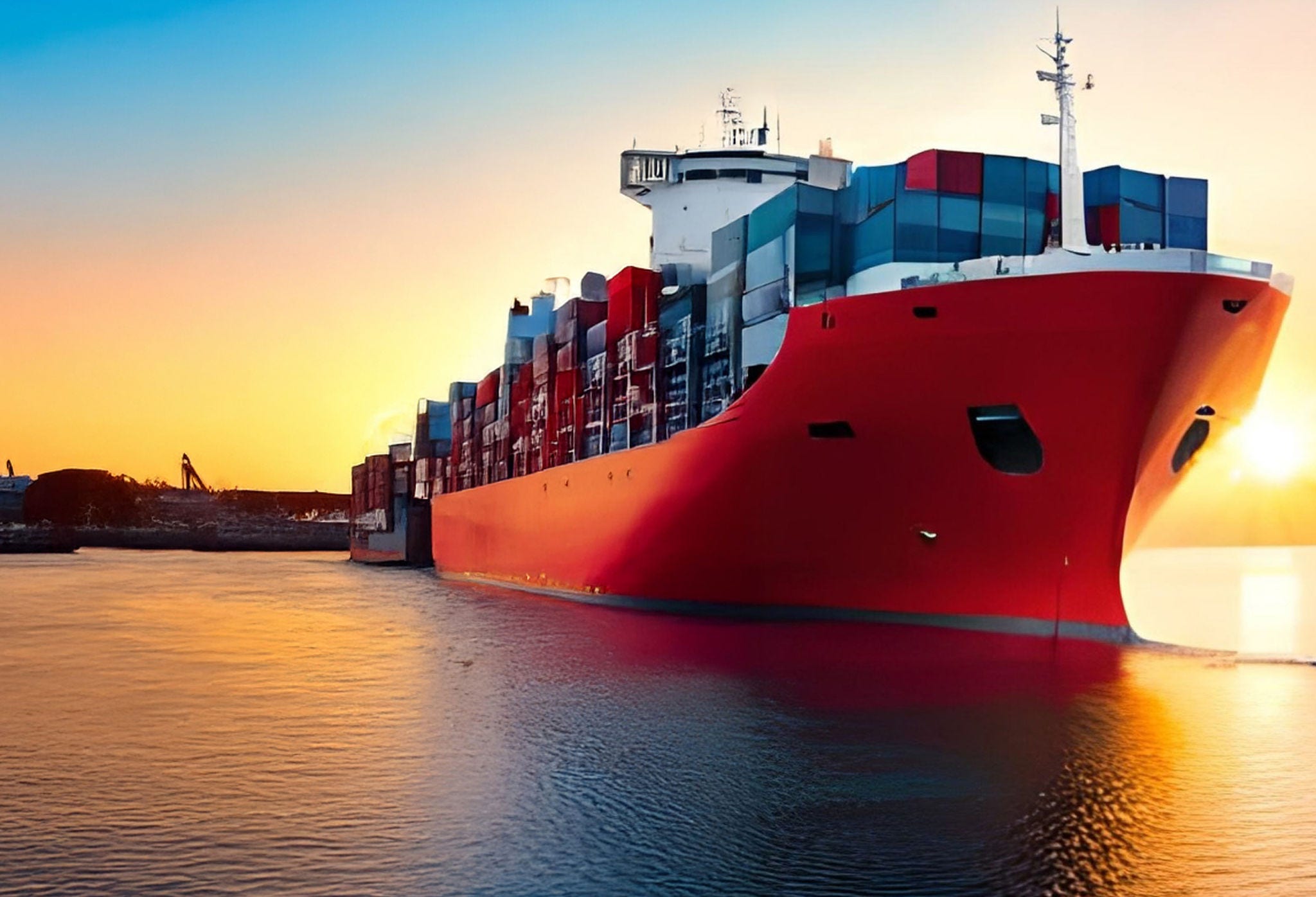To survive in a dynamic world, driven by ever-evolving industry trends and technological innovation, multinational corporations must find newer ways of conducting business for survival and growth. Further, geopolitical disruptions, rising protectionist policies, regulatory scrutiny, possible COVID-19-like disruptions, restrictions on foreign investments and increasing cybersecurity threats are directly impacting their supply chain strategies. From diversification to reshoring and regionalisation to risk mitigation, policies have been adapted and processes overhauled.
Limit and manage disruption, mitigate risk, and build resilience and agility
Now, more than ever, CXOs are making tactical and operational changes to navigate through this highly uncertain, fast-changing global environment and meet the needs of a vastly evolved business landscape. In this process, they are seeking expert advice to limit and manage disruption, mitigate risk, and build resilience and agility.
KPMG in India has been closely monitoring the shifting investment trends and supporting clients in their supply chain diversification strategies. Through focused efforts, we are helping clients identify key risk areas that complicate strategic transformation, aiming for business continuity and resilience. Our efforts are channelised to help clients get forward-looking perspectives on areas related to:
India advantage
India, much like other emerging economies, is exploring ways to build its investment attractiveness and make it a viable contender for global manufacturing/sourcing. The government’s investment-driven policy measures along with corporate tax cuts, investment in infrastructure under the National Infrastructure Pipeline (NIP) and business-friendly changes to labour laws are likely to further underpin India’s attractiveness as a global manufacturing hub.
Notable government reforms*


What makes India a favourable manufacturing destination?
Government of India’s strategic priorities
Sectors of strategic importance in India
Sectors of emerging importance in India
KPMG In India’s Supply Chain offerings
We understand the complexities of today’s volatile and high-risk business environment. Our team of experienced professionals work across geographies and sectors to support organisations with comprehensive offerings and a value-driven approach specifically revolving around the following areas:
Webinars
Success stories and experiences of our valued clients
Discover narratives that highlight the challenges our clients faced, the services we provided, and the results they achieved. These case studies offer a detailed look into our collaborative process, demonstrating our commitment to understanding each client's unique needs and delivering customised services that drive success.
Driving growth with Supply Chain trends
- ET Now Global Business Summit
- India Inc on the move - Smart and sustainable manufacturing
- Union Budget 2026-27
- India’s Manufacturing Transformation
- India’s Strategic Edge
- The Economic Times Global Manufacturing Conclave
- CII CFO Roundtable
- India's semiconductor ambitions are gathering pace
- Decoding taxation and ESG
- The CFO Board’s Risk Roundtable
Nilachal Mishra
Partner and Head, Government & Public Services (G&PS), National Leader - Government and Infrastructure
KPMG in India
India has built a powerful foundation as the world's largest economy, with growth above 7% and a sharp rise in public investment. Falling logistics costs, stronger banks, and world‑class digital infrastructure are reshaping our economic landscape. But the next phase is about quality of execution.
Our challenge now is to convert this momentum into Viksit Bharat,, powered by the right talent, deeper manufacturing capabilities, rising Tier 2 and Tier 3 cities, a vibrant MSME ecosystem, and a focused push on sunrise sectors such as semiconductors, AI, and critical minerals.
Creating the future of industrial operations means moving from hardware-bound systems to software-defined automation and robotics which enables flexibility, scalability, being data-driven, and connected. This is the need of the hour to scale up Indian manufacturing ecosystem.
- S Sathish
- Neeraj Bansal
- Manoj Kumar Vijai
- Purushothaman KG
- Mohit Bhasin
- Naveen Aggarwal
The Budget clearly underscores its commitment to sustaining India's manufacturing momentum while fortifying the supporting ecosystem and infrastructure. These initiatives will substantially elevate India’s standing as a strong manufacturing nation globally.
Budget 2026 boosts India’s growth framework with a INR12.2 lakh crore capex outlay (+9%), strengthening infrastructure across transport, energy and digital systems while supporting innovation‑led manufacturing.
Backed by a INR10,000‑crore MSME Growth Fund and targeted export measures, these investments aim to lift productivity and attract private capital. Fiscal stability is maintained, with the FY26 deficit revised to 4.4% and the FY27 estimate at 4.3%.
Budget 2026 is ambitious and timely. As India accelerates infrastructure, manufacturing, and AI-led growth, the real differentiator will be how well governance, risk management, and accountability are embedded into execution - not treated as afterthoughts.
The Budget 2026-27 sends a decisive signal to global investors. By providing a long‑term tax holiday for foreign cloud service providers using Indian data centres, expanding the India Semiconductor Mission into a more integrated ISM 2.0, and deepening incentives for electronics and component manufacturing, India has placed digital infrastructure at the heart of its investment agenda.
These measures sharply reduce the cost of operating at scale, derisk long‑term capital commitments and strengthen India’s position in global technology supply chains. Together, they are likely to catalyse a new wave of high‑quality FDI into data infrastructure, semiconductor design and manufacturing ecosystems, and cloud‑led digital services -positioning India as a preferred hub for future‑ready global investments.
The forward-looking measures signal robust momentum for India's economy. Here are few key takeaways from my perspective that shall fuel economic growth:
- A budget to further boost manufacturing led economic growth with special emphasis on sports goods, white goods and electronic components manufacturing scheme shall position India as a global hub for strategic sectors.
- The Startup India Fund of Funds 2.0 will supercharge innovation and resilience, enabling scale-up in high-potential ventures especially in deep-tech innovation.


India has made real progress in raising manufacturing as a share of GDP, but our next leap depends on:
- building strength in component manufacturing,
- connecting last mile infrastructure, and
- easing financing pressures on exporters.
This is the moment for India to rethink what it will take to become a true global manufacturing hub and act with clarity and speed.
We are operating in a global landscape defined by persistent uncertainty - geopolitical realignments, climate pressures, technological disruption and shifting capital flows. Within this environment, nations that can adapt, execute, and inspire confidence will shape the future. India is actively re-shaping its opportunities within this uncertainty - not reacting to it but leveraging it. By expanding market access, deepening regional and minilateral partnerships, and building agile trade frameworks, India is scaling manufacturing, accelerating frontier technologies and strengthening global supply-chain integration.
- S Sathish
- Jeffry Jacob
- Nikhil Patil
India has made significant progress in reshaping its manufacturing landscape over the past decade, but deeper technological and ecosystem transformation is needed to compete with global leaders. While the top quartile of Indian manufacturers shows reasonable capability, a significant portion of companies are far below the desired digital maturity. Without widespread adoption of Industry 4.0, automation and AI-enabled systems, India risks losing competitiveness to countries that scaled digitalisation much earlier.
Jeffry Jacob
Partner and National Sector Leader - Automotive, Industry Group Leader - Chemicals
KPMG in India
Reimagining global manufacturing & supply chains in a disrupted world - Resilience, agility & strategic autonomy
Resilient supply chains aren’t built on infrastructure or technology alone, they are built on collaboration, smart capital choices and adaptable talent. As India strengthens its position in global manufacturing, innovation, advanced digital tools, and artificial intelligence will drive the next wave of transformation. The next disruption may look different, but the ability to pivot quickly and collaborate effectively will remain the winning mantra.
Nikhil Patil
Partner, C&O-Commercial-CM&LS
KPMG in India
The India advantage in scale, cost, and capability for the world
India has always had the ingenuity and talent; what has changed is the alignment of global demand, domestic modernisation and a greater appetite for investment in capability. However, India cannot claim global competitiveness unless its tier-2 and tier-3 suppliers rise on quality, compliance, and technology.
- Ummehaani
- Sumit Kapoor
Third-Party Risk Management (TPRM) has traditionally been fragmented and siloed across departments, sometimes reduced to check-in-the-box compliance. As supply chains are more interconnected and interdependent today, by integrating ESG, regulatory, reputational, cyber and financial risk parameters into a unified framework, organisations can move from reactive to predictive risk management. However, challenges remain: data quality and availability, integration with legacy systems, regulatory compliance and explainability, and change management. Overcoming these hurdles with Artificial Intelligence makes it possible to connect the dots across all risk types, so companies can stop playing catch-up and start leading with confidence, trust, and adaptability.
Businesses today face rapid, unpredictable changes: new products, regulatory shifts, talent competition, ESG, and tech transformation. The pace of “unknown unknowns” or “Black Swan events” is accelerating at an unprecedented pace. Naturally, traditional risk models find it difficult to keep up with that pace as they assume stability and predictability in businesses and operating landscape. AI is emerging as a new risk nervous system helping with fraud detection, cyber defence, supply chain resilience and more. Future operating model of risk management must consider the four-dimensional lens of probability, severity, interconnectedness, and velocity; which helps with real-time intelligence and simulation of multiple futures.
At KPMG we continue to assist our clients stay ahead of the curve through our AI led risk management capabilities – converting noise to signals and doubts to trust.
India’s edge in the semiconductor race goes beyond incentives. The government is steadily building an ecosystem by investing in skilling, enabling infrastructure, and ensuring policy stability. Competitiveness will rest on ecosystem depth and the ability to deliver with speed and consistency. Early wins in packaging and design give confidence we are moving in the right direction.
The Indian automotive Industry has a massive opportunity in harnessing sustainability-led growth. The Indian automtive This can open new markets and increase export penetration in others. A low-carbon manufacturing push can drive huge growth and acceleration.
Geopolitical shifts are forcing CFOs to rethink supply chain architecture. From satellite facilities to optionality in logistics, the focus is shifting from scale to agility. CFOs must lead with long-term commitment, especially in volatile global environments. India’s strength won’t come from competing on cost; it will come from engineered products, process innovation and logistics. Risk management, scenario planning and treasury coordination are now central to financial leadership.
Hear from the experts
India insights
Our insights is your gateway to thought leadership and in-depth reports. Explore our curated collection of valuable content, where we delve into complex business challenges, share industry trends, and provide actionable insights.
Something went wrong
Oops!! Something went wrong, please try again
Media
Global insights
Sources:
* Invest India, accessed on 5 April 2024
1. Invest India and Make in India, accessed on 5 April 2024
2. Report on Production Linked Incentive Scheme for Large Scale Mobile and Component Manufacturing by Ministry of Electronics & Information Technology, Government of India, September 2021, accessed on 5 April 2024
3. Press Information Bureau, Ministry of Textiles, accessed on 5 April 2024
4. Invest India report Inside India Production Linked Incentives Schemes: White Goods
5. Production Linked Incentive Scheme for Food Processing Industry, accessed on 5 April 2024
6. Nine PLI schemes have been approved by the cabinet so far, Ministry of Commerce & Industry, accessed on 5 April 2024
Note to readers: We have relied on secondary sources, which are considered reliable, but have not independently verified the data. KPMG shall not be liable and/or responsible for any reliance placed on the content of the website.
KPMG in India contacts
- Neeraj Bansal
- Manoj Ohri
- Himanshu Tewari
- Mohit Bhasin
- S Satish
- Amit Bhargava















































